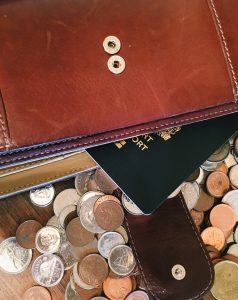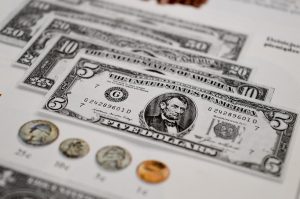The forex market, also known as the foreign exchange market, is a decentralized market where currencies are traded. It is considered to be the largest and most liquid financial market in the world, with an average daily trading volume of over $5 trillion. But why is the forex market so big? In this article, we will explore the factors that have contributed to the immense size of the forex market.
1. Globalization
Globalization has played a significant role in the growth of the forex market. As businesses and individuals have become more interconnected across borders, the need to exchange currencies has increased. For instance, a company in the United States that imports goods from China must pay for those goods in Chinese yuan, which it may not have. Therefore, it needs to exchange its dollars for yuan in the forex market. Similarly, a tourist traveling from the United Kingdom to Japan needs to exchange pounds for yen.
2. 24-Hour Trading
The forex market is open 24 hours a day, five days a week. This means that traders can buy and sell currencies at any time, regardless of where they are located in the world. The market is only closed on weekends, which means that traders have ample opportunities to participate in the market. This accessibility has made the forex market a popular choice for traders around the world.
3. High Liquidity
Liquidity refers to the ease with which an asset can be bought or sold without affecting its price. The forex market is highly liquid, which means that traders can enter or exit positions quickly without causing significant price movements. This high liquidity is a result of the vast number of participants in the market, including banks, hedge funds, retail traders, and governments.
4. Leverage
Leverage is a tool that allows traders to control large positions with a small amount of capital. In the forex market, traders can use leverage to increase their exposure to currency pairs. For example, a trader with $1,000 in their account could open a position worth $100,000 using 100:1 leverage. This tool allows traders to make significant profits from small price movements, but it also increases their risk.
5. Low Transaction Costs
The forex market has low transaction costs compared to other financial markets. Brokers typically charge a small spread, which is the difference between the bid and ask price of a currency pair. This spread is often just a few pips, which is a fraction of a cent. Additionally, there are no commissions or fees associated with trading in the forex market.
6. Volatility
Volatility refers to the degree of price fluctuations in an asset. The forex market is known for its high volatility, which creates opportunities for traders to profit from price movements. Traders can use technical analysis and fundamental analysis to predict the direction of a currency pair and enter positions accordingly. However, high volatility also increases the risk of trading, as prices can move quickly and unexpectedly.
In conclusion, the forex market is big because of a variety of factors, including globalization, accessibility, high liquidity, leverage, low transaction costs, and volatility. These factors have attracted traders from all over the world and have made the forex market the largest and most liquid financial market in the world. However, it is important to remember that trading in the forex market involves risk and should only be done by those with a thorough understanding of the market and its complexities.





